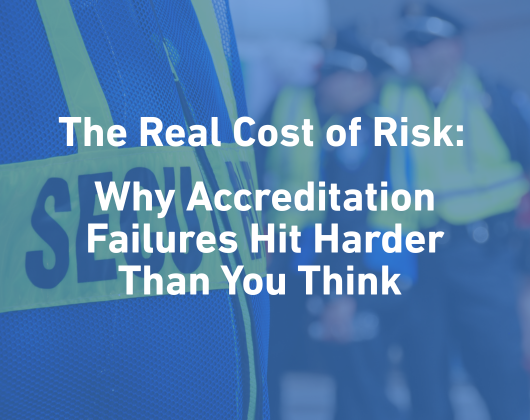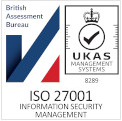In our latest blog post, Chris Phillips, founder and managing director of the International Protect and Prepare Security Office (IPPSO), discusses the recent comments made by the United Kingdom’s newly appointed terrorism watchdog, Max Hill.
Max Hill has linked the threat of terrorism today to the threats we faced for many years from the IRA. Some people would say that terrorism is terrorism and it’s all similar. But I would say there is a big difference between the geopolitical terrorism of the IRA – which basically wanted the Brits out of Ireland – and the mass murdering ideologies of ISIS and Al Qaeda.
The indicators of success for ISIS are “body bags” and it really doesn’t matter who is in them. The more the better as far as they are concerned. This of course makes the challenge to prevent attacks imperative. So while we can agree the threat of terrorism has been around a long time this particular threat is so grave we must continue to make concerted efforts to stop an attack from happening.
Max Hill is a seasoned lawyer with lots of experience in terrorism offences but I imagine that, even he was shocked at the levels of terrorism threat from the intelligence picture he is now privy to. For those who are working inside the intelligence services this is nothing new. The horrific and sadistic planning of ISIS and its UK based supporters is really business as usual and it has been like this for some time.
One major difficulty is how to persuade those who hold the purse strings to invest in protecting their own businesses. To reduce their vulnerability and to act now, without any specific intelligence to say that an attack is imminent. I have personally witnessed the Head of Security and COO of a large business in the UK being briefed that their site was the subject of terrorist planning. That there was evidence that their site was the likely target of terrorists who wanted to kill and maim their staff. I saw the blood drain out of their faces and I can tell you extra security measures were authorised immediately.
So how do we engage businesses to take the severe threat of terrorism seriously? How do we persuade businesses who are in the line of terrorist fire, but have not seen any direct evidence? Any security professional will tell you, finding finance for security is difficult. Whether its cyber protection or physical security measures. It has been well over a year now for example since the horrific attacks in Paris, and specifically the Bataclan. Yet when the BBC asked event organisers, “what are you doing differently to protect people since the attack on the Bataclan?”, the silence was deafening. This was a music venue and an event that was specifically targeted by terrorists. But I can tell you very few businesses have felt compelled to act because of it. Apart from one or two locations, the warning has been ignored. Many think “it’ll never happen to us”, or “we haven’t got any funding.
At the very least, simple physical security measures can make a difference. Equally important is the proper accreditation of staff. Amazingly some event organisers have no idea who is on their site. Many think that outsourcing absolves them of responsibility for staff on-site. Of course, it doesn’t. It’s vital to ensure that a criminal or terrorist isn’t working on the inside, and of course to invest in cyber security that works to prevent data loss or make sure ransom-ware doesn’t wipe out your business. All venues should want to know who is working on their site or building. If you don’t put into place adequate checks then you may as well forget all the other security as an attacking insider will soon defeat all your other expensive security measures.
The following may be a useful guide:
- Take responsibility for your event or site and who you allow on it
- Ensure that you set the correct levels of accreditation depending on the identified risk for each role (a good example of this would-be caterers who serve the VIPs may have a different level of checking to those serving the public).
- Set some parameters as to the levels of background checks for each role
- Engage your contractors to carry out the same pre-employment checks
- Check that staff have a right to work permit and aren’t a threat to you
- Provide badges with a photo which sets out who they are and where they can go
- Provide security staff to check badges
- If you have issues with your staff during an event ensure they are noted so that next time you can decide on their suitability for the work
Businesses that organise, run and hold events, whether you are a large stadium or a small theatre, don’t get caught out by poor people security. Your business depends on it.





![EAS-Accredit-300dpi[22]](https://www.accredit-solutions.com/wp-content/uploads/2024/01/EAS-Accredit-300dpi22-300x156.png)

